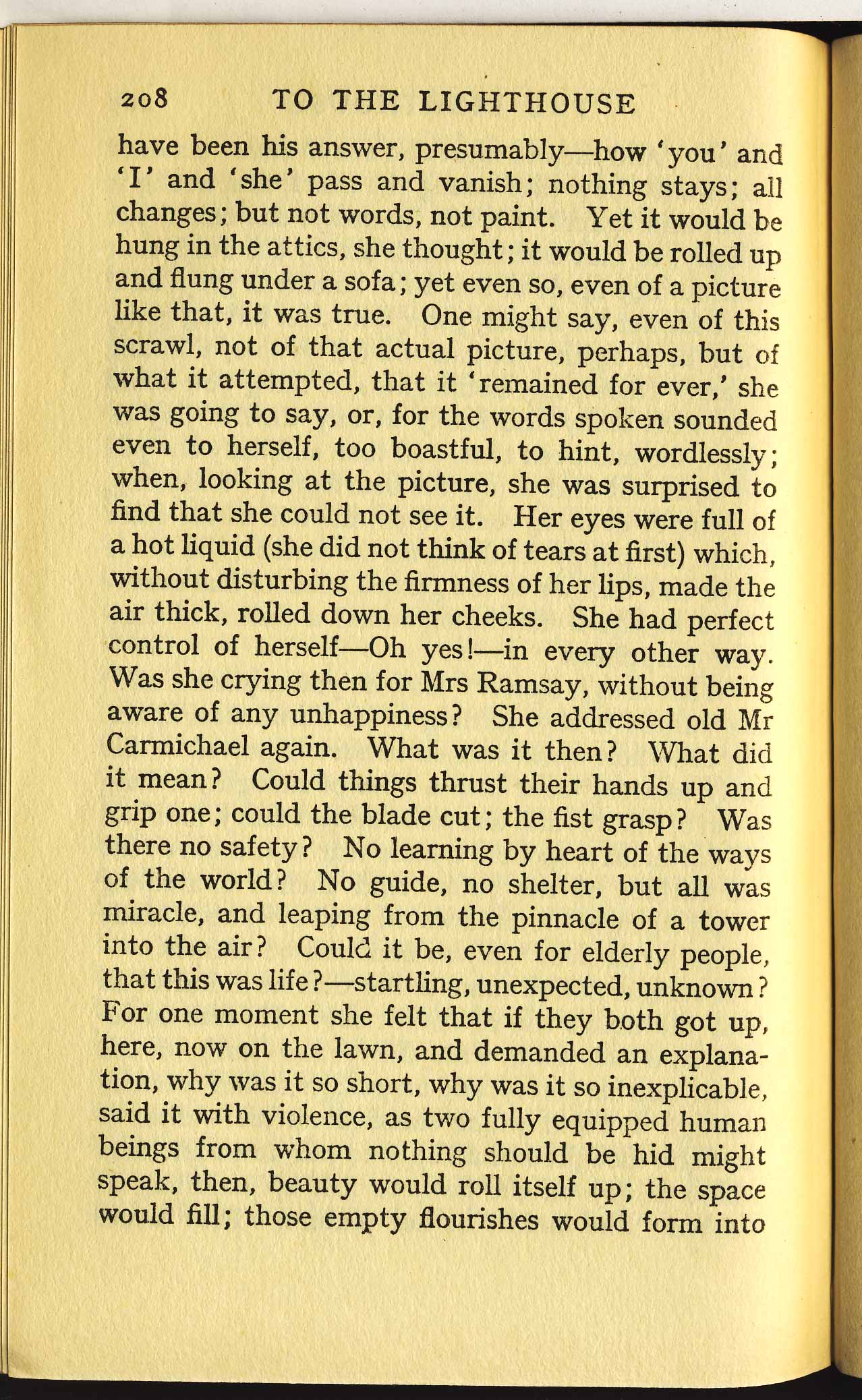
208 TO THE LIGHTHOUSEhave been his answer, presumablyŌĆöhow 'youŌĆÖ andŌĆśIŌĆÖ and ŌĆśsheŌĆÖ pass and vanish; nothing stays; allchanges; but not words, not paint. Yet it would behung in the attics, she thought; it would be rolled upand flung under a sofa; yet even so, even of a picturelike that, it was true. One might say, even of thisscrawl, not of that actual picture, perhaps, but ofwhat it attempted, that it 'remained for ever,ŌĆÖ shewas going to say, or, for the words spoken soundedeven to herself, too boastful, to hint, wordlessly;when, looking at the picture, she was surprised tofind that she could not see it. Her eyes were full ofa hot liquid (she did not think of tears at first) which,without disturbing the firmness of her lips, made theair thick, rolled down her cheeks. She had perfectcontrol of herselfŌĆöOh yes!ŌĆöin every other way.Was she crying then for Mrs Ramsay, without beingaware of any unhappiness? She addressed old MrCarmichael again. What was it then? What didit mean? Could things thrust their hands up andgrip one; could the blade cut; the fist grasp? Wasthere no safety? No learning by heart of the waysof the world? No guide, no shelter, but all wasmiracle, and leaping from the pinnacle of a towerinto the air? Could it be, even for elderly people,that this was life?ŌĆöstartling, unexpected, unknown?For one moment she felt that if they both got up,here, now on the lawn, and demanded an explana-tion, why was it so short, why was it so inexplicable,said it with violence, as two fully equipped humanbeings from whom nothing should be hid mightspeak, then, beauty would roll itself up; the spacewould fill; those empty flourishes would form into









